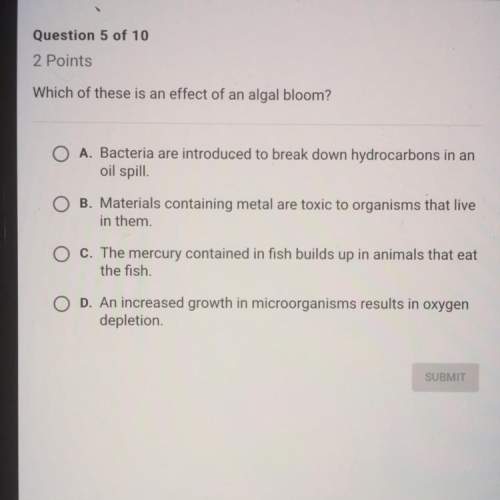
Sickle-cell anemia is a genetically inherited disease. Homozygous individuals (SS) have normal blood cells that are easily infected with the malarial parasite. Thus, many of these individuals become ill and may die. Individuals homozygous for the sickle-cell trait (ss) have sickled red blood cells that readily collapse when deoxygenated. Although malaria cannot grow in these red blood cells, individuals often die because of the hemoglobin disorder. However, individuals with the heterozygous condition (Ss) have some sickling of red blood cells, but generally not enough to cause death. In addition, the heterozygotes tend to survive better than either of the homozygous conditions as they are resistant to malaria. If 16% of an African population is born with a severe form of sickle-cell anemia (ss), what percentage of the population will be heterozygous (Ss) for sickle-cell and therefore resistant to malaria?

Answers: 2


Another question on Biology

Biology, 21.06.2019 20:00
How does the author's purpose in this passage differ from an author writing about her personal struggle living with asthma?
Answers: 1

Biology, 21.06.2019 21:30
Before the can be observed by using a transmission electron microscope, cells are sliced into very thin sections. what disadvantage does this procedure present in the study of cellular parts
Answers: 1

Biology, 22.06.2019 00:10
Which would happen if more forests were cut down? a. the nitrogen cycle would be stopped b. nitrogen would be fixed by bacteria more quickly c. the amount of co2 in the atmosphere would increase d. fossil fuels would build up in the soil c the amount of co2 in the atmosphere would increase
Answers: 1

Biology, 22.06.2019 05:30
“in 1492 columbus sailed the ocean blue” is an example of: a)explicit memory b) procedural memory c) semantic memory d)episodic memory
Answers: 3
You know the right answer?
Sickle-cell anemia is a genetically inherited disease. Homozygous individuals (SS) have normal blood...
Questions

Mathematics, 06.02.2021 06:40

Mathematics, 06.02.2021 06:40

Health, 06.02.2021 06:40

Mathematics, 06.02.2021 06:40


Mathematics, 06.02.2021 06:40

Mathematics, 06.02.2021 06:40


History, 06.02.2021 06:40

Health, 06.02.2021 06:40


English, 06.02.2021 06:40

Health, 06.02.2021 06:40

Social Studies, 06.02.2021 06:40

Computers and Technology, 06.02.2021 06:40


Biology, 06.02.2021 06:40

Mathematics, 06.02.2021 06:40

Mathematics, 06.02.2021 06:40




